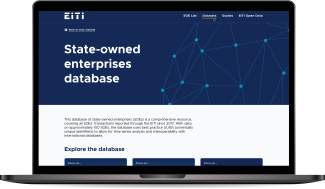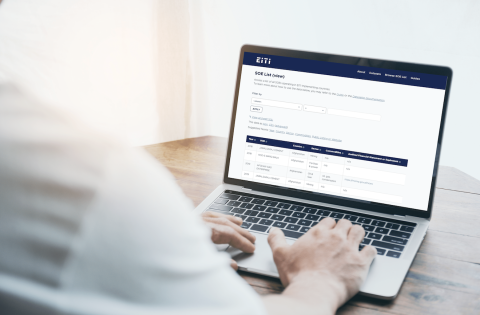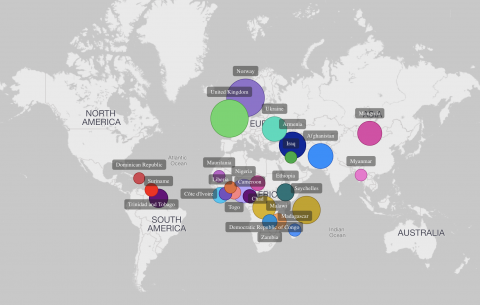
Open data
Open data lies at the core of the EITI’s mission to promote the open and accountable management of natural resources.
By making data easily accessible, comprehensible and usable, EITI disclosures can strengthen public debate, inform decision-making and promote public understanding of natural resource management. These objectives are underpinned by the EITI’s open data policy and data strategy.
EITI in numbers
- 55
- countries implement the EITI Standard
- 671
- fiscal years are covered by EITI reporting
- 3.1
- trillion USD of government revenues disclosed in open format
Summary data
The EITI collects and publishes information from implementing countries through summary data, a standardised and open format which covers financial data, reporting entities, government revenues and project-level data.
Summary data is accessible through various formats:
- Excel files submitted by implementing countries
- Bulk data, available for download on this page or via country pages
- The EITI’s Application Programming Interface (API)
Summary data files integrate several data standards, such as HS codes for commodities and ISO system for currencies. They also classify revenue streams according to the IMF’s Government Finance Statistics (GFS) framework, which enables comparison of fiscal data across countries and years.
State-owned enterprises database
The EITI’s database of state-owned enterprises (SOEs) is a comprehensive resource, covering all SOEs’ transactions reported through the EITI since 2017.

Community of practice
In November 2023, the EITI International Secretariat launched the EITI Data Use Community of Practice, a network of more than 30 data practitioners from EITI implementing countries. The initiative aims to provide a platform to share experiences, innovations and good practices in using EITI disclosures for research and analysis, with the goal of informing public debate and policymaking on natural resource governance.
To learn more about the community practice, contact the EITI’s data team at [email protected].
EITI Requirements and guidance
The EITI Standard requires implementing countries to adopt national open data policies and to publish data that is freely accessible, timely, comprehensive, reliable, comprehensible and contributes to public debate. This is covered by EITI Requirements 4.8, 4.9, 7.1 and 7.2.
Related guidance:
Explore EITI implementing countries
Data on extractive sector production, government revenues and top paying companies can be viewed and downloaded on our country pages.
News, blogs and events

EITI launches new database of state-owned enterprises


EITI announces winner of the energy transition datathon

Datathon: Innovative solutions for a data-driven energy transition

OGP at 10, EITI at 20: Where to next?

Transparency at source: How do countries fare?

Twelve years of transparency: How EITI implementing countries are progressing in the Open Budget Survey

Better data, better debate
Contact
For questions, contact the EITI’s data team at [email protected].





